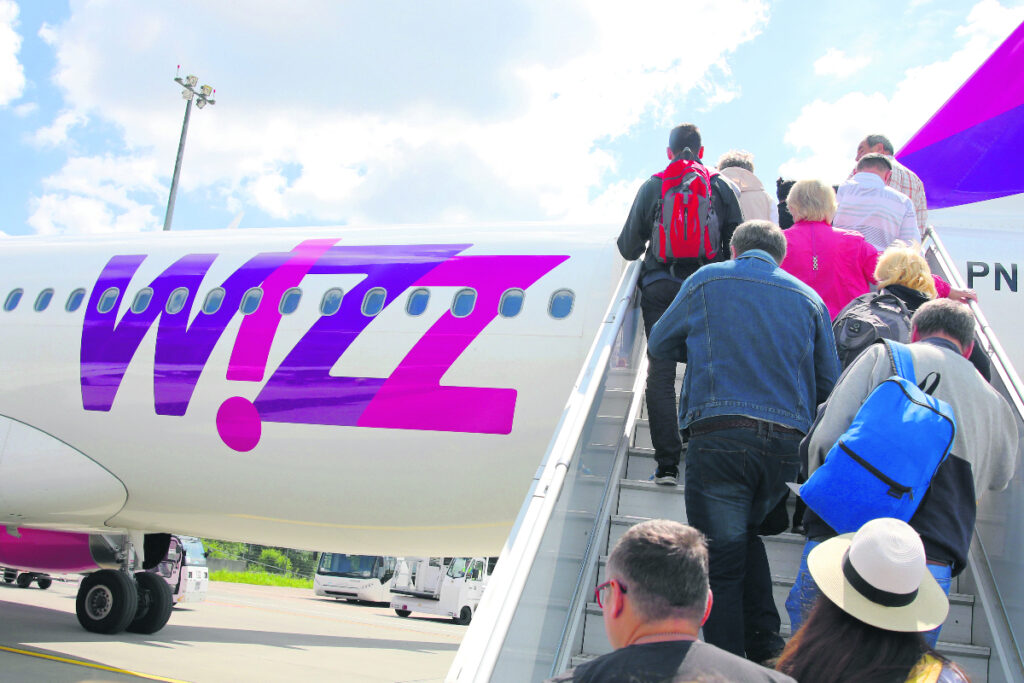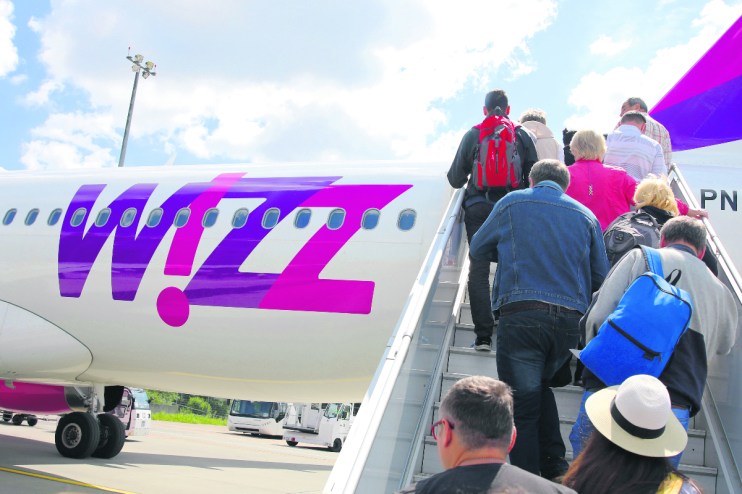Trending
- Meta’s Job Cuts Adds To Its Ruthless Culture
- Barclays warning for customers as interest rates drop
- A19 northbound exit for A689 | Northbound | Congestion
- How can startups balance the risk of return-to-work mandates?
- Live: Severe delays on A27 as road blocked
- Home-working risks London ‘hollowing out’
- Burst pipe causing water supply issues for people in South Lanarkshire
- Belfast cycling campaigners hit out at ‘hidden’ DfI consultation on taxis in bus lanes





Wizz Air Faces Shareholder Dispute Over £15m Executive Payout Scheme
Budget airline Wizz Air is once again in the midst of a shareholder dispute regarding its proposal to award millions to top executives without tying the payouts to any performance benchmarks.
The company had previously encountered controversy over executive compensation, notably when plans to grant its CEO József Váradi a £100m bonus last year sparked significant backlash.
At its 2023 annual general meeting, a quarter of Wizz Air’s shareholders opposed the CEO’s pay package after he was granted an extension to meet performance targets.
Now, Wizz Air aims to retain approximately 15 senior staff members by offering bonuses of up to £15m if they remain with the company until 2028.
Details of the plan were outlined in the company’s latest annual report, which includes a one-time award for top executives.
In a recent interview with City A.M., Váradi defended the proposed payouts, arguing that they benefit the entire organization.
However, shareholders have historically opposed excessively large bonuses. In 2020, they rejected Váradi’s executive pay plans for the year due to a £485,000 bonus despite missing profit targets.
Despite achieving record passenger numbers, Wizz Air’s stock price has declined significantly since its peak in March 2021, dropping by over half and 15% in the last year.
The airline’s punctuality performance has also come under scrutiny, being named the UK’s least punctual airline for the third consecutive year.
In response, a Wizz Air spokesperson cited external challenges and emphasized the importance of rewarding and retaining talent to sustain the company’s growth and competitiveness.